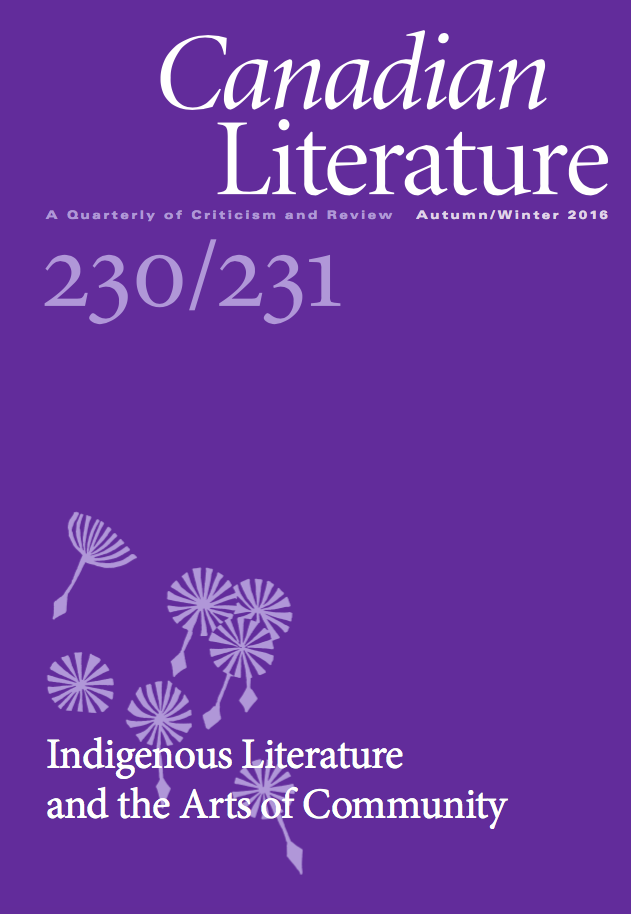Empty Spaces
DOI:
https://doi.org/10.14288/cl.v0i230-1.189158Abstract
This pieces are an excerpt from an ongoing (and largely unfinished) project of mine that is tentatively titled Timeless American Classic. The pieces in this project are all derivations, reinterpretations, and creative distant readings of James Fenimore Cooper’s novel The Last of the Mohicans. This project was in part inspired by Roxanne Dunbar-Ortiz’s argument (in An Indigenous Peoples’ History of the United States) that Cooper’s novel plays a role in reinventing the colonial origins of the United States, and in creating a narrative that was “instrumental in nullifying guilt related to genocide.” Ultimately, this project seeks to disrupt the colonial logic in the novel by displacing (and reorienting) the text itself in order expose the problematic representation of Indigenous peoples. This particular piece responds to (and perhaps reflects) the deeply troubling fascination the novel has with the concept of terra nullius and empty, uninhabited land. As such, Empty Spaces is an impurely conceptual section of this project that draws heavily from Cooper’s descriptions of blank land, but that also includes many of my own translations and reinterpretations.Published
2017-10-06
Issue
Section
Poetry


